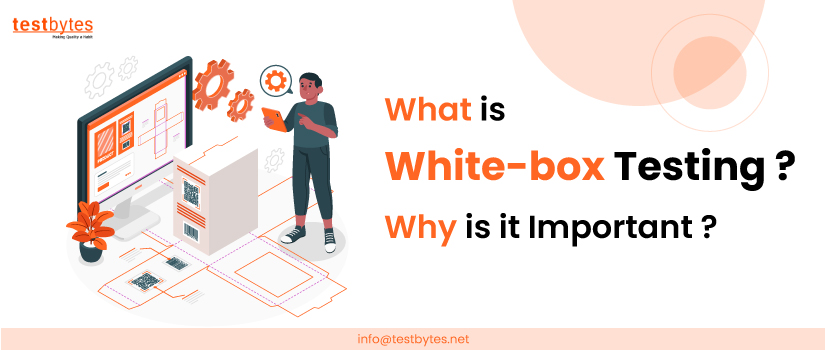
How Does The Modern Tester Differ From The Traditional Tester?
January 9th, 2017

Software testing is evolving with each passing day and so is the role of a software tester. To launch the applications quickly, companies usually put constant pressure on testers to complete the testing of applications as quickly as possible. Further, software testers are also expected to upgrade their skill sets, know about coding, and understand the different functionalities of business.
Therefore, software testers are also expected to evolve.
To understand the importance of software testing, let’s take a scenario. While purchasing a new smartphone, we usually ensure that the phone is in absolute perfect condition. We definitely do not want our smartphone to have any scratch on the screen. Further, we also expect it to have a screen, a battery, a keypad and any other important component that is required for its best functioning.
Similarly, it should fulfill requirements such as the minimum required battery backup, specified megapixel of camera, processor performance and other specifications as given in the manual. Further, the package must also contain documentation specifying that the pre-sales checks have been completed.
In other words, the specification details provided must justifiably be fulfilled or else we will feel aggrieved. If the smartphone does not meet the given specifications then chances are that the testing of the smartphone is not done properly. Software testing is a process that verifies that the software works as per the requirements specified by the client.
With the new technological developments and more companies entering into software testing, software testers are now able to keep track of different testing processes, quantify and optimize these processes at each level of testing. Most software testing companies are now following modern way of testing.
The modern tester dominates the testing arena as compared to a traditional tester. In a traditional way of testing, the software testing takes place only after the build and execution phases. Whereas, in case of a modern way of testing, software testing is conducted at each stage of software development and installation, that is, at requirement stage, at design stage, at build and execution stage, at test stage, at installation stage and at maintenance stage.
Let’s understand how a modern tester differs from a traditional tester.
- Role: Traditional testers use a single test strategy in all situations. They follow a single method of testing and are usually kept out of code bases. Unlike developers, they are not given many opportunities to enhance the existing processes. On the other hand, a modern tester not only enjoys as a member of the testing team but also participates in all the important phases of software development and testing.
Modern testers work with the software development team, customer support team and user interface design team. The main objective is to work in coordination with all these teams from the beginning of the software development so that at each phase of development, the software can be tested and rectified thereby eliminating time and cost involved in rectifying the bugs in the later phase of development.
- Expertise: The expertise of a traditional tester is simply limited to testing and they are not required to get into the details of how to use their testing knowledge in each process of project development. Whereas, a modern tester plays an important role at every stage of project development. A modern tester forms different and unique testing strategies as per the project, observes different processes of business and how these processes work with applications and analyzes how the application can benefit the product owner.
The modern tester need not be a programmer but has technical knowledge.
- Tools: A traditional tester works with the tools provided by the company and often the tools are less advanced. Such tools include HPQuality Center(QC) and spreadsheets to report testing bugs. The incentive offered to a traditional tester is also quite less. A traditional tester often finds it difficult to adapt new testing tools, approaches and processes.
On the contrary, a modern tester is always curious to learn and explore different methods, strategies and approaches of testing. He or she explores the latest testing tools and test management software. A modern tester follows test-first and continuous delivery approaches.
- Goals: A traditional tester is often under tremendous pressure and is primarily concerned with meeting deadlines and business goals. They are usually unaware of the bigger picture and this leads to indecisiveness. A modern tester, on the other hand, is aware of the bigger picture and directly contributes in making high-quality software keeping in mind the business needs and the end user requirements. Testing software becomes a team problem rather than the sole responsibility of the modern tester.
- Skills: A traditional tester must have the following skills:
- Analytical, critical and logical thinking
- Rational conclusion
- Intellectual curiosity
- Skill to recognize and apply basic knowledge
Apart from the above-mentioned skills, a modern tester must have some additional skills, which are as follows:
- Reading, analyzing and writing code
- Understanding the bigger picture
- Identifying and addressing design issues
- Communicating and understanding technical and business requirements
- Recognizing different use cases for manual testing
The traditional way of testing software fails to meet the testing challenges of the ever-growing rapid development environment. Therefore, a modern tester is considered more skillful at handling testing challenges in comparison to a traditional tester.


 Software Testing Events
Software Testing Events App Testing
App Testing Web App Testing
Web App Testing Game Testing
Game Testing Automation Testing
Automation Testing Load Testing
Load Testing Security Testing
Security Testing Performance Testing
Performance Testing Hire a Tester
Hire a Tester







